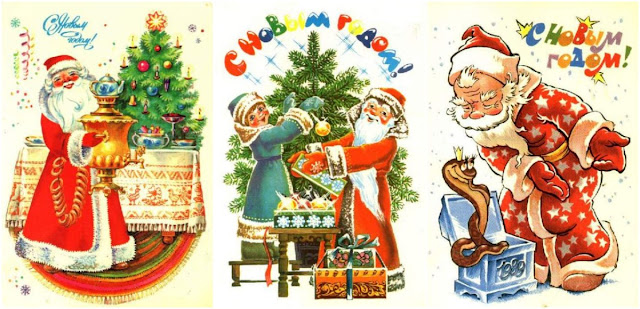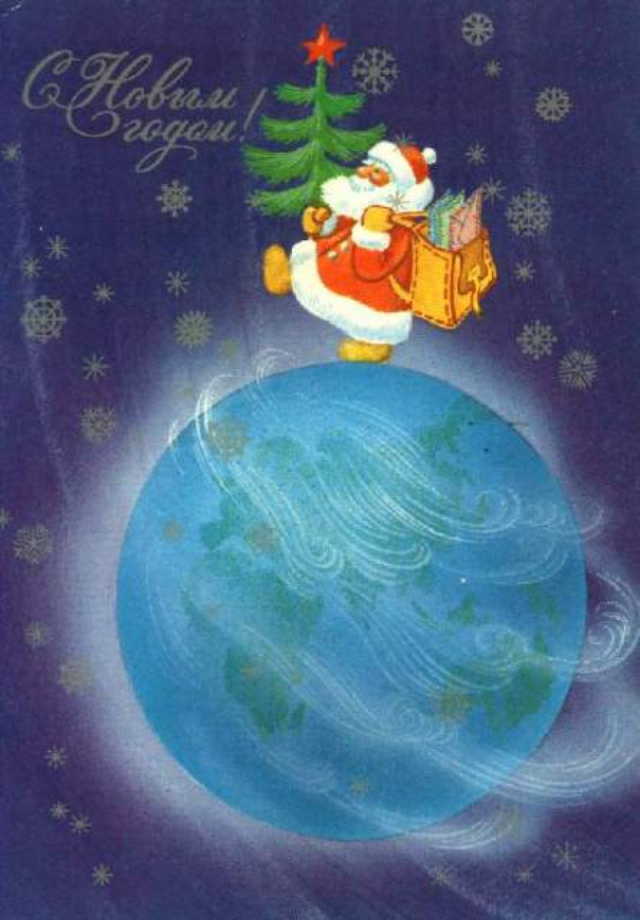Ded Moroz is a legendary figure similar to Santa Claus who has his roots in Slavic mythology. The tradition of Ded Moroz is mostly spread in East Slavic countries and is an important part of Russian culture. At the beginning of the Soviet era, communist authorities banned Ded Moroz. Nevertheless, he soon became an important part of the Soviet culture. The literal translation of Ded Moroz is “Grandpa Frost”.
Ded Moroz is depicted as bringing presents to well-mannered children, often delivering them in person in December days and secretly under the New Year tree on night at December 31 on New Year’s Eve.
The origins of the character of Ded Moroz predates Christianity as a Slavic wizard of winter. According to some sources in Slavic mythology, Ded Moroz, back then also called Morozko or Ded, is a snow demon. However, before the Christianity of Rus’ the term demon had no negative connotation. Like with many other mythical figures only over time demons were attributed negative characteristics.
Under the influence of Orthodox traditions, the character of Ded Moroz was transformed. Since the 19th century the attributes and legend of Ded Moroz have been shaped by literary influences. The play Snegurochka by Aleksandr Ostrovsky was influential in this respect, as was Rimsky-Korsakov’s Snegurochka with libretto based on the play. By the end of the 19th century Ded Moroz became a popular character.
Following the Russian Revolution, Christmas traditions were actively discouraged because they were considered to be “bourgeois and religious.” Similarly, in 1928 Ded Moroz was declared “an ally of the priest and kulak.” Nevertheless, the image of Ded Moroz took its current form during Soviet times, becoming the main symbol of the New Year’s holiday (Novy God) that replaced Christmas. Some Christmas traditions were revived following the famous letter by Pavel Postyshev, published in Pravda on December 28, 1935. Postyshev believed that the origins of the holiday, which were pre-Christian, were less important than the benefits it could bring to Soviet children.







































Beautiful!
ReplyDelete